Ayutthaya
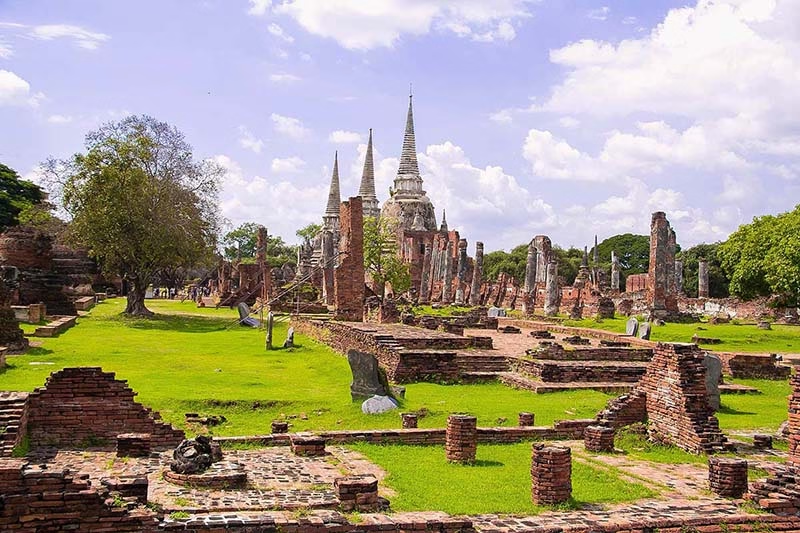
Updated: October 2025
If you close your eyes and imagine the sound of temple bells at dawn, mist rising from canals, golden spires reaching toward soft sunlight, that was my morning in Ayutthaya. During my time living there, I discovered a city that breathes history, blends into daily life, and whispers stories in stone and water. This is Ayutthaya — not just as a tourist site, but as a living, breathing ancient heart of Thailand.
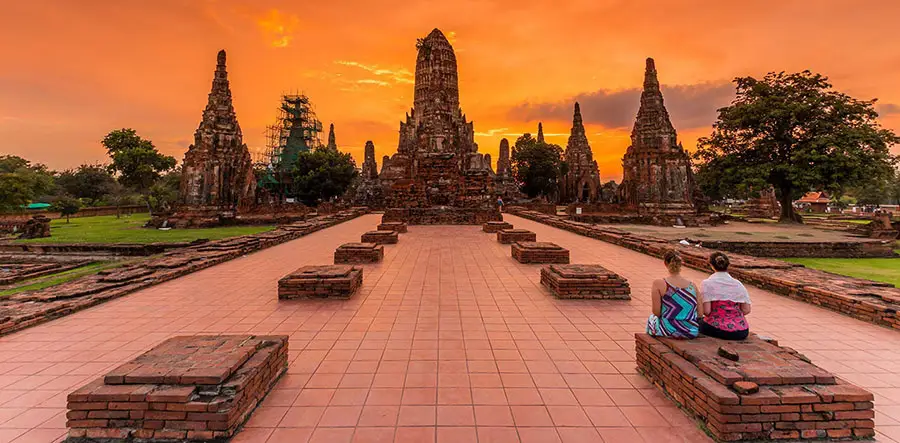
A Glimpse into the Past: The Rise & Fall of the Kingdom
Founded in 1350, Ayutthaya (Phra Nakhon Si Ayutthaya) once stood as the dazzling capital of the Siamese kingdom. For over four centuries, it flourished as a trade hub on the Chao Phraya’s arteries, a crossroads for merchants and pilgrims from China, Persia, Europe, and India.
Its architecture combined Khmer, Sri Lankan, and Thai styles — towered prangs, serene cloisters, and gilded Buddha statues. In 1767, the Burmese invaded and the city was sacked, monuments fallen, libraries burned, but its spirit remained in stone.
Today it is on the UNESCO World Heritage List, a testament to its role in shaping Thai culture, religion, and regional influence.
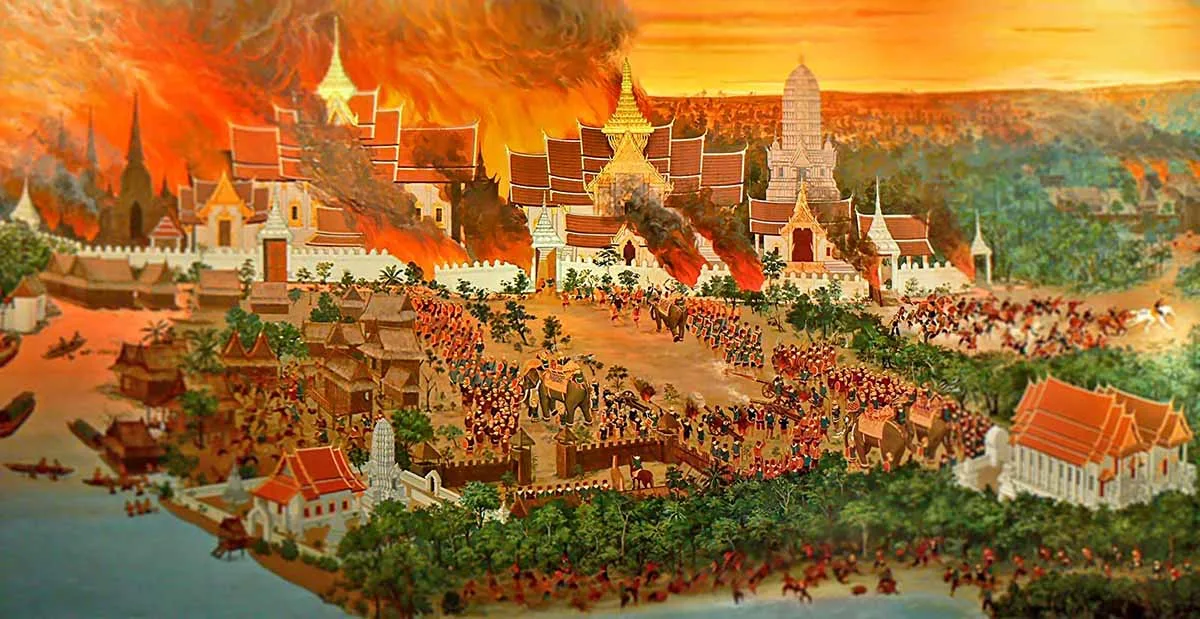
Ayutthaya Today: Between Ruins and River Life
Walking Ayutthaya today feels like time folding in on itself. Ancient ruins crouch beside riverside cafés. Monks in saffron robes glide past motorbikes. Local markets trade fresh mangoes, sticky rice, and slow conversations.
You can explore its grand temples — like Wat Mahathat, Wat Phra Si Sanphet, Wat Ratchaburana, and Wat Chaiwatthanaram — then pause at a shady teak pavilion by the river for a fresh coconut.
Near the edge of the historic island, Ayutthaya Retreat captured my heart. Traditional Thai architecture, little boats drifting across a lake, massages in wooden pavilions, and total repose under lotus blossoms — it felt like a secret haven suspended in time.
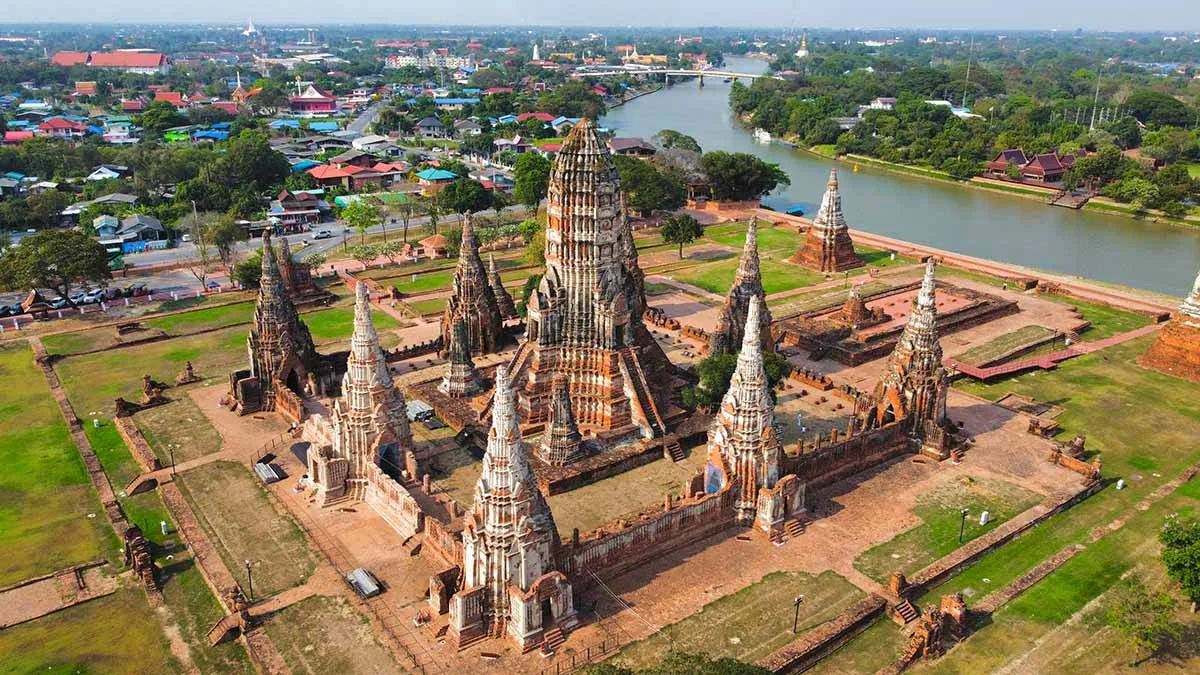
Must-Visit Temples & Ruins
Each of the below links to your in-depth temple articles on Thai HUB for further reading.
Wat Mahathat – the Buddha head entwined in tree roots, a silent symbol of nature’s embrace in ruins.
Wat Phra Si Sanphet – the royal temple of kings, once glinting with gold.
Wat Ratchaburana – its crypts once held treasures, now silent in stone.
Wat Chaiwatthanaram – riverside spires against sunset, one of the most photogenic temples.
Ayutthaya Historical Park – the open-air museum of Siam’s golden age.
These temples not only tell stories of glory and decline — they echo the spiritual heartbeat of Theravada Buddhism, which remains deeply woven into Thai life.
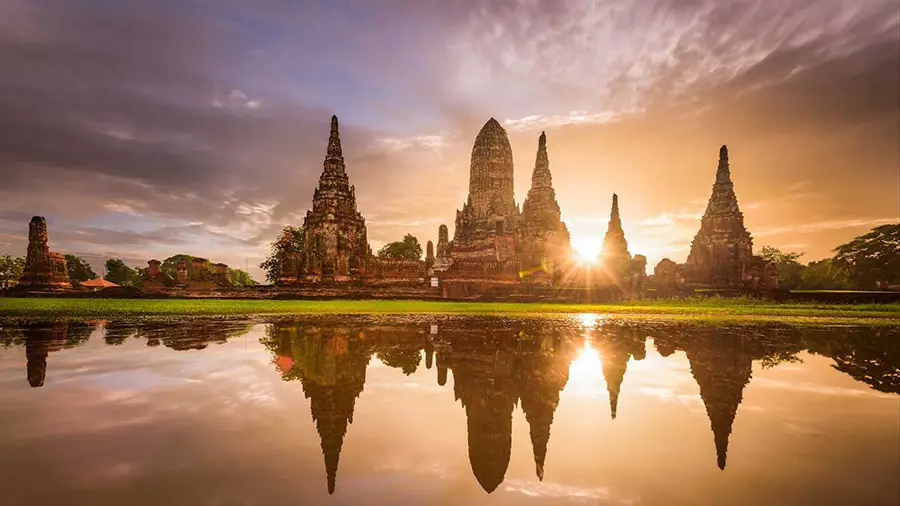
A Day in the Life: Local Rhythms
In those months, my routine looked something like this:
Dawn visit to a temple — the sound of chanting and monks collecting alms at first light
Midmorning floating market strolls
Afternoon shade under trees or in cafés by canals
Evening boat ride around the island, watching lanterns float on water
The locals call Ayutthaya “Venice of the East” — an apt metaphor. Canals crisscross the city, carrying echoes of boats, temple bells, and quiet mornings.
At markets, you’ll sample crispy fish, mango sticky rice, and fruit sold from boats. At night, the ruins light up softly; the stones glow in the dark, quiet except for the occasional cicada hum.

Best Time to Visit & Practical Tips
| Season | What You’ll Experience | Tip |
|---|---|---|
| November – February | Cool breezes, dry skies | Ideal for long walks through ruins |
| March – May | Hot weather, clear light | Bring water, early starts help |
| June – October | Afternoon showers, lush green scenery | Visit early or late day; bring rain gear |
Getting there: ~80 km north of Bangkok, ~1–1.5 hrs by train or road.
Travel link: From your Ayutthaya trip, many travelers later continue on to Bangkok — explore the Bangkok Travel Guide for that part of your journey.
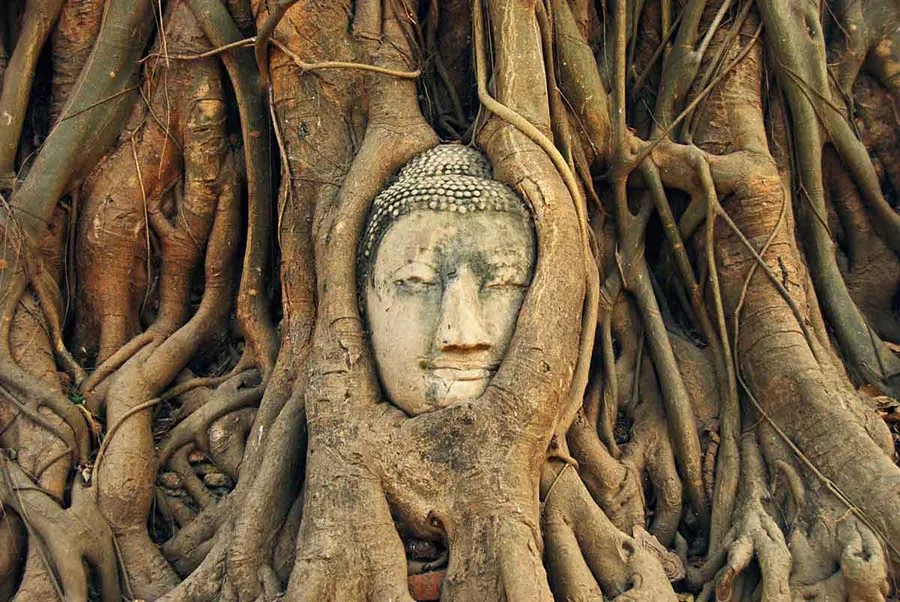
Funny Fact
People often ask: How did the Buddha head end up stuck in tree roots? Legend says a fierce storm buried a statue, and later, the roots grew around it — turning mystery into a living icon.
Lesser-Known Fact
One of Ayutthaya’s canals, buried today, once carried war elephants right into the city — a strategic waterway that is now invisible but once vital to defense.
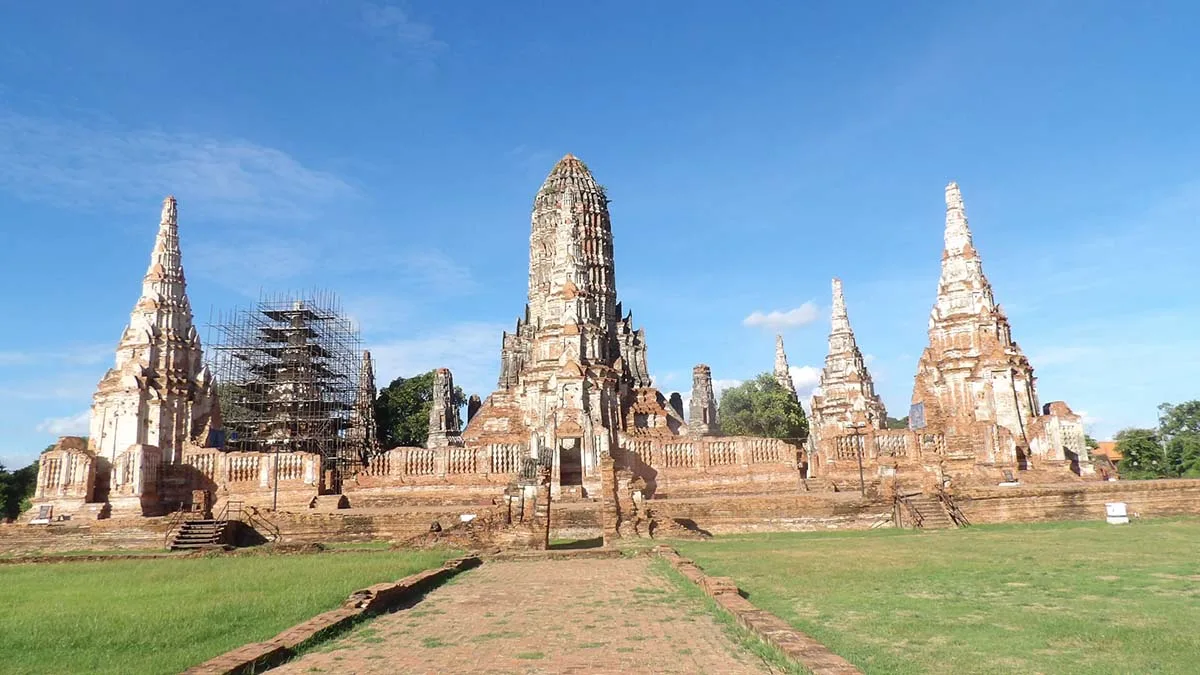
Ayutthaya FAQ
Visit between November and February — cooler temperatures and minimal rain make walking through ruins a joy.
No — but a guide adds depth. If you visit with just maps, you’ll see the grandeur. With a guide, you’ll hear ghost stories, dynasties, and hidden symbolism.
Yes — very much so. Stick to day tours, stay in the historic center, and enjoy evenings by candlelit ruins. Locals are warm and helpful.
One full day covers major ruins. Two days + early start gives breathing room for side temples, floating markets, and sunset boat rides.
Final Thoughts
Ayutthaya isn’t a relic — it’s alive. Its stones hum with stories, its canals reflect passing clouds, and every sunset feels like a quiet offering. I left Ayutthaya changed — its ancient heart becomes yours when you walk its pathways.
If you’ve visited, tell me: which temple whispered its story to you?
If not — I can’t wait for you to walk through time here. Do come, explore slowly, and always carry your curiosity.